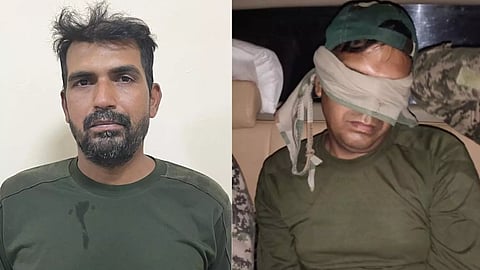BSF Jawan Returns After 21 Days in Pakistan: Reveals Shocking Details of Psychological Torture
Amid a seemingly calm surface in Indo-Pak relations, tensions at the border remain a stark reality. A recent incident involving a Border Security Force (BSF) jawan, who mistakenly crossed into Pakistani territory, has brought to light disturbing accounts of psychological torture endured during his detention.
Purnam Kumar Shaw, a BSF constable posted in Ferozepur, Punjab, inadvertently crossed the international border into Pakistan. After spending 21 days in Pakistani custody, he was repatriated via the Attari-Wagah border on May 14. Upon his return, Shaw shared harrowing details about the treatment he received while detained by Pakistani forces.
According to Shaw, although he was not subjected to physical torture, he endured severe psychological abuse. “I was kept blindfolded for days, denied sleep, and not allowed to maintain basic hygiene, including brushing my teeth,” he revealed. The aim, he believes, was to mentally destabilize him and extract information about Indian intelligence operations.
During his captivity, Shaw was frequently moved from one location to another, further adding to his mental exhaustion. He claimed that Pakistani authorities seized every opportunity to torment him emotionally and mentally. His ordeal has reportedly taken a toll on his mental health, raising serious concerns about the methods used during his detention.
Shaw’s release comes at a delicate time in bilateral relations, particularly following the Pahalgam terror attack and Operation Sindoor, which have further strained ties between the two nations.
Officials have not issued a formal statement on the interrogation Shaw faced, but intelligence agencies are expected to debrief him thoroughly as part of post-return protocol.
As the incident underscores the fragile peace and the dangers faced by personnel stationed at sensitive border points, it has sparked renewed concerns about the treatment of detained military personnel and the urgent need for clear communication protocols in border areas.

